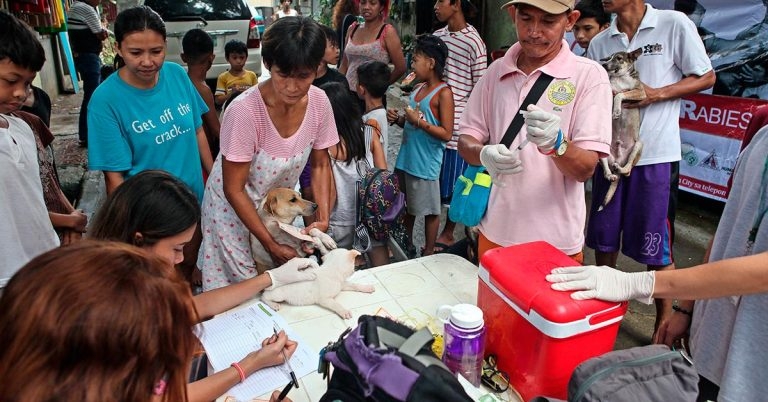24 Sept 2020
Association is running webinars on 28 September, bringing together number of stakeholders, to coincide with World Rabies Day.

Image © Global Alliance for Rabies Control.
Stakeholders and experts on rabies are coming together for a series of webinars to mark World Rabies Day on 28 September, organised by the WSAVA.
The webinars will explore the welfare, management and one health issues around rabies control programmes, and will highlight the importance of collaboration between stakeholders to end human deaths from dog-mediated rabies by 2030.
“End rabies: collaborate, vaccinate” is the theme for this year’s World Rabies Day.
In the first webinar, timed to suit vets and animal health professionals in Asia and Oceania, speakers will include:
Rey del Napoles, from WSAVA member Philippine Animal Hospital Association, will present a case study of its rabies control initiatives, followed by Luuk Schoonman, chief technical advisor for the Food and Agriculture Organization in Indonesia, who will discuss its rabies programmes in Bali.
Dr Jayme and Dr Lee will also participate in a live Q&A afterwards.
Dr Stone will also participate in the second webinar, timed to suit vets and animal health professionals in Europe, Africa and the Americas, with other speakers including:
Rauna Athingo, from WSAVA member the Veterinary Association of Namibia, will present a case study of its recent rabies control programmes.
Dr Cleaveland and Dr Gamboa will also participate in the live Q&A.
WSAVA president Shane Ryan will host the webinars. He said: “In a year dominated by COVID-19, it’s easy to forget that rabies, a much-neglected disease, still kills more than 60,000 people a year – many of them children.
“We hope discussions during our webinars will help to share best practice – particularly in the important areas of humane management and welfare.
“We also hope they will inspire veterinary professionals around the world to participate in initiatives to control the disease, and give them a deeper understanding of the welfare and one health issues involved.”